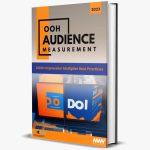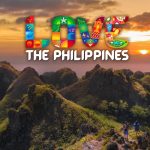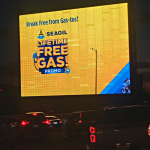To yield a much better Return of Investment, market leaders such as Foodpanda, Kotra Pharma, and Lalamove identify the best use of location data when planning and executing their Out-of-Home (OOH) campaigns.
These companies are part of Outernet Marketing Innovation Group (OMIG), a collective group of marketing innovation leaders coming together to put out the best practices and guidelines of OOH to the wider community.
OMIG executes campaigns using cutting edge location media technology for pre-campaign planning, in-flight analytics, dynamic contents serving and post-campaign reporting.
To fully showcase the potential of these capabilities, the following is a complication of some of OMIG’s campaign case studies for these leading brands:
1) Optimising OOH Schedules Based on Continuous Audience Monitoring
As a leading digital provider, foodpanda wanted to execute a more agile OOH campaign to respond to the unpredictable audience movement changes brought by the COVID-19 pandemic.
The Challenge: In Malaysia, the government imposed various types of lockdowns and this meant that foodpanda’s OOH campaigns would have to be able to respond to these changes.
The Solution: Moving Walls worked together with foodpanda to continuously monitor audiences on a weekly basis and optimise their campaign with high audience traffic hours. By frequently optimising campaigns in an unpredictable environment such as this during the lockdown, foodpanda was able to recover audience viewers up by 11.27% as revealed in their post campaign reporting during a period in December 2020.
“OOH Is a powerful medium that delivers high impact messages and adds value to any communication plan,” said APAC Head of Brand Media and Procurement, Foodpanda, Hasnain Babrawala. “This medium combined with the right use of data, can deliver remarkable results.”
2) Making OOH Environments More Dynamic To Environment Factors
In another campaign by the leading digital provider, foodpanda Philippines wanted to reach audiences by using weather triggers to resonate with audiences based on weather conditions of the day.
The Challenge: OOH creative tends to be more generic and is unable to be customised to the audience and environmental factors.
The Solution: Making OOH communication relevant to the weather of the day to build deeper engagement and prompt orders, all in an automated and scaled manner across locations. Multiple creatives were curated for this campaign such as Halo-Halo desserts for hot days and hot bowls during rainy days.
By publishing content that dynamically changed according to weather conditions, foodpanda achieved their objective to effectively resonate with their audiences while utilising the potential of OOH’s digital technologies.
In a previously published quote, Roj Tirona, Brand Manager of foodpanda Philippines shares that “Outdoor advertising is considered to offer the highest-impact among reach-building media platforms especially for outwardly mobile consumers. Agile ads are able to talk to our consumers whenever defined conditions/triggers are met – for foodpanda, we have identified weather, dayparts, and moments as our triggers – this ensures that our ads get seen by our audience at the most relevant times.”
The campaign was also picked up by Adobo Magazine in their article Campaign Spotlight: foodpanda curates EDSA menu billboards with weather & traffic triggers, first of its kind DOOH.
3) Enhance Transparency And Visibility For Better Campaign Measurement
Foodpanda wanted to verify and measure the delivery of promised spots and impressions while providing full transparency to all campaign stakeholders during the campaign.
The Challenge: While online measurement is more straightforward, OOH media, on the other hand, does require higher involvement to measure audiences especially when a set evaluation standard is not available.
The Solution: By setting up a blockchain ledger system to verify spots that were played, we were able to compare the reported spots against the planned or promised spots. The campaign achieved transparency amongst its stakeholders while the targeting, buying, execution, distribution and measurement of the DOOH campaign were also optimised in which the pilot managed to create greater cost efficiencies across the DOOH media supply chain.
“Being in a competitive environment such as Foodpanda is, blockchain makes media spends accountable and can provide a real-time, independent view of OOH ad delivery in order for us to better strategically plan our marketing expenditure as we expand rapidly across global markets,” Hasnain added.
4) Lalamove Links OOH Media Campaigns To Brand Recall And Digital Engagement
Lalamove wanted to know how their investment in both static and digital billboards would impact their audiences.
The Challenge: Digital advertising is used for engagement metrics like click-throughs and watch time. However, OOH creative impact is not immediately known.

The Solution: A 5-day digital analysis was conducted for audiences exposed to 5 of Lalamove’s OOH locations. The analysis involved a Forced Exposure test where 164k questionnaires (refer to Figure 1.1) were delivered as a mobile campaign in order to collect the response from the audiences whether they recall seeing the Lalamove OOH ads or not. The unexposed or controlled audience were then used as a benchmark for the brand awareness prior to the execution of the campaign.
5) Minimising Media Wastage By Locating Highly Dense Media Locations

Kotra Pharma is a big believer in the power of offline media priming and usually depends on a sustained outdoor advertising presence on major highways. They rely heavily on OOH media and used location data to drive their planning and renewal decisions.
The Challenge: How could Kotra Pharma leverage location data to remotely make offline media decisions?
The Solution: Kotra Pharma adopted Moving Audiences Decisions (MAD) platform to identify
the shift in their audiences movement behaviour pre and post Covid at their media Locations. The traffic patterns were analysed and compared for May, June, July 2019 and May, June, July 2020 for 3 months based on the volumetrics data for both 2019 & 2020 and qualitative data (demographics, work, living) for 2020.
To better reach the “Post-Covid” audiences, screens with potential overlapping views were avoided by tracking today’s new movement patterns.
“Given our presence across a variety of OOH media sites, we have already embraced measurement technologies to evaluate performance and drive future planning,” said Managing Director – Kotra Pharma, Piong Teck Onn. “As people movement continues to be unpredictable, we look forward to deploying some of the newer capabilities around this evolving medium.”
Industry Validation and Education Will Be The Driving Factor Of OOH
The Moving Audiences Platform provides capabilities that planners and advertisers are not traditionally used to. A great deal of industry validation and education has to go into each market to encourage the product itself.
Rather than depending on OOH Budgets alone, which represent 6% of the total media spends, encouraging the adoption of the medium from leading brands can set the context and drive demand from larger advertisers.
The OMIG currently has onboarded 28 regional brands and they are running various types of pilots powered by the automation and audience data technologies we provide. The outputs of the group consist of case studies, research, and educational white papers that are being published on a public resource portal available to all stakeholders of the industry.
For more details on each campaign for and an in-depth understanding of the campaign brief and results, visit the Outernet case study page,
MARKETING Magazine is not responsible for the content of external sites.









